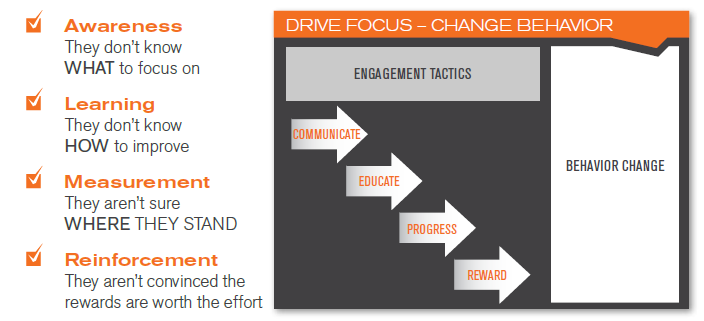Does Your Rewards Program Only Focus on Cash Rewards?
Nov 19, 2015
Written by: Walter Ruckes
(View Author Bio)
Believe it or not, larger salaries, higher bonuses and cash incentives are NOT always the best way to reward your employees. Finding the right mix of cash and non-cash rewards is crucial to a successful rewards program.

Overview
When was the last time you looked at the mix of total rewards for your sales team? With the growing research in the field of behavioral economics, more sales directors and VPs are realizing that bigger salaries, higher bonuses and cash incentives are not always the best answer.
It seems as though no matter how much money you throw at your sales team, you still wind up with some high performers who work hard no matter how you challenge them, new hires who still aren’t sure which end is up, a handful of slackers who may never figure things out and a mass of well-meaning reps who are literally caught in the middle. They want to improve their performance but something is stopping them:
Once you are confident your compensation plan (salary + commission) is competitive, the best way to drive focus, teach new behaviors, report on progress and reward for improvement is to look beyond cash and understand how behavioral economics can unlock a variety of new activities that lead to results.
Best-in-class companies spend anywhere from 2-10% of total compensation on non-cash rewards for their sales teams.
Based on experience, best-in-class companies spend anywhere from 2-10% of total compensation on non-cash rewards for their sales teams. If you are driving behavior change for tasks such as entering data into a CRM system, it is near the lower end. But if you want to motivate immediate results and push reps out of their comfort zone, the payout should reflect the higher risk. Short-term stretch goals can be as high as 10% of income for that period of time.
These rules apply not only to reps who are your employees. There’s a growing trend to use a higher percentage of non-cash rewards for dealer and distributor channels to cut through the clutter, drive focus and gather vital data about who exactly is selling your product.
Here are some of the top ways sales leaders are succeeding by using non-cash rewards:
Setting Goals Using Self-Selection Structure
If you do an online search for “goal-setting”, you’ll get a return that includes millions of results and find thousands of books promising all kinds of ways to make your wildest dreams come true. But what the advice-givers frequently forget to point out is this: goals with the best chance of success are the ones you choose for yourself, not the ones that are handed to you by someone else. In a sales environment, goal-setting is an activity that happens all the time. New goals are handed out every day. But the key to success is taking corporate or divisional goals and making them meaningful to the individuals working to achieve them.
Closing the Say-Do Gap
Let’s face it; we all like to talk big. Especially managers. But the hard part is actually DOING what you say you will do. So many distractions, so little time. It’s the management equivalent of talking about getting in shape but then focusing more on cheese curls than barbell curls. Behavioral economics research confirms what we’ve known all along: humans prefer to avoid pain and pursue pleasure. Adding short-term incentives with highly visual and exciting rewards like electronics, designer clothing,
jewelry and travel will help close that gap and get your managers and reps alike focused on the work that needs to get done.
Discover the right mix of rewards.
Submitting your information allows us to reach out to you in the future.













